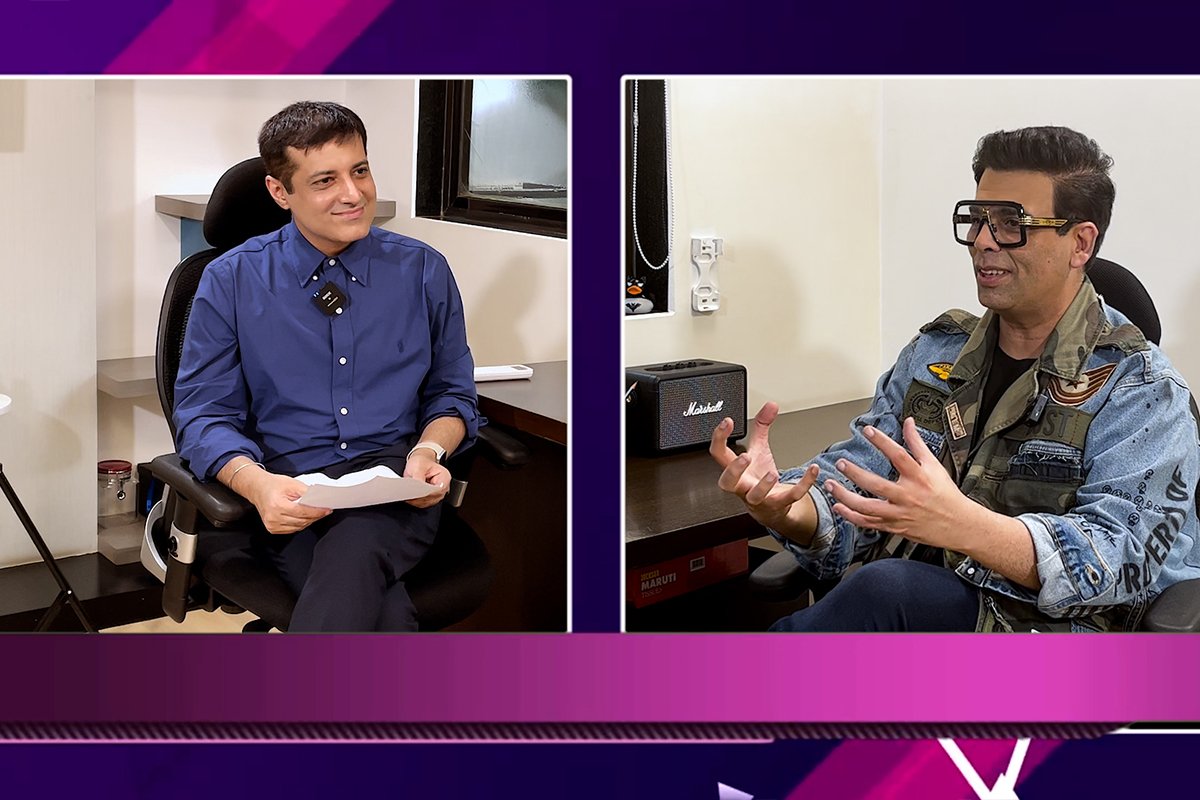In Part 3 of the interview with The New Indian executive editor Rohan Dua, ace Bollywood producer Karan Johar talks about the controversy over Amir Khan’s Laal Singh Chaddha, the credibility of Padma awards, and the Varanasi connection of his recently-released movie Brahmāstra: Excerpts:
Rohan Dua: There’s a huge controversy over the losses that Aamir Khan’s new movie Laal Singh Chaddha has incurred. There’s also a massive outrage against him. Do you think this also unsettles an actor or a producer?
Karan Johar: My father died of cancer in 2004 and his last released film was Kal Ho Na Ho, which ironically portrays a man battling a disease. My father’s treatment started in New York. He told the oncologist treating him that he was shooting a film there. The oncologist asked him what the film was about. My father said the film is about a man who comes to New York because he is dying and the doctor got a little like thrown-off because my father was also being treated for cancer (fourth-stage cancer).
Every filmmaker or artist always wishes for the best when he/she tells a story or makes a creation. It comes from his or her heart. I don’t want to speak about any particular person or film, but I have to say that every time I tell a story, I always try to tell a story which the audience loves; I never want to offend or upset anyone — that’s how I was raised. My parents always said if you have committed a mistake or broken someone’s heart, you should apologize. My creativity and filmmaking have always been to garner love of the nation and never to upset or offend anyone. I am all about public opinion that is genuine and heartfelt even if it is criticism. I have always accepted my failure because I feel that if a film didn’t work for whatever reason then maybe, it is not creatively resonating with the audience.
Rohan Dua: You said that Brahmastra is shot in the beautiful locales of Banaras (Varanasi), which is also the Prime Minister’s constituency. Was it by design and intended to win over the Hindus? How close do you feel to this religion?
Karan Johar: I feel the Baranasi element is a very important part of the film and narrative. It was always in Ayan’s vision, a decade away when I first had this story in 2013. It was always in the narrative. Ayan is an extremely religious person and an ardent Goddess Durga worshipper. His father especially sets up a pandal during the festival time. They have a very big pandal. All the cousins go to the pandal and celebrate the festival. So when we speak about religion and the power of religion, we all are people who have been raised with a value system that comes and derives out of this religion. It reflects in the respect for elders, respect for our land, and respect for our relationships. That’s how I have been raised, that’s how Ayan has been raised. I was taught that we should touch the feet of the elders. When I meet an elder, I literally bow down out of respect.
We had shot the film; the sequence of Kesariya song was to be shot, but the weather was not favorable. And for some reason, we had to go back.
Rohan Dua: So you had to shoot twice.
Karan Johar:
Karan: Yes, so Kesariya the first version had that different beat. Then the song got changed and then adapted. Those of Ayan and Preetam Da got together. But we went back to the sun. It was almost like the Lord was shining over us. The sun was shining beautifully, you know. We got all the support and help from everyone to shoot there and it just, I felt, added to the blessings to Brahmastra.
Part 2: Interview: PM Modi Knows About Every Star; Padmas Given On Merit, Says KaJo
Rohan Dua: In fact, the soundtrack of this movie is very captivating. It actually captures the essence of what Varanasi is today. How closely connected did you feel when you visited Kashi Vishwanath? How did you feel?
Karan Johar: Unfortunately, during the shooting in Banaras, I was out of the country. I was personally not there to seek the blessings, but everyone’s experience was beautiful. When you watch the song shot at Kashi Vishwanath on the big screen, you will get a sense of spirituality.
Rohan Dua: So, you were not there?
Karan Johar: I hope that we go there with pride in our hearts post-release.









